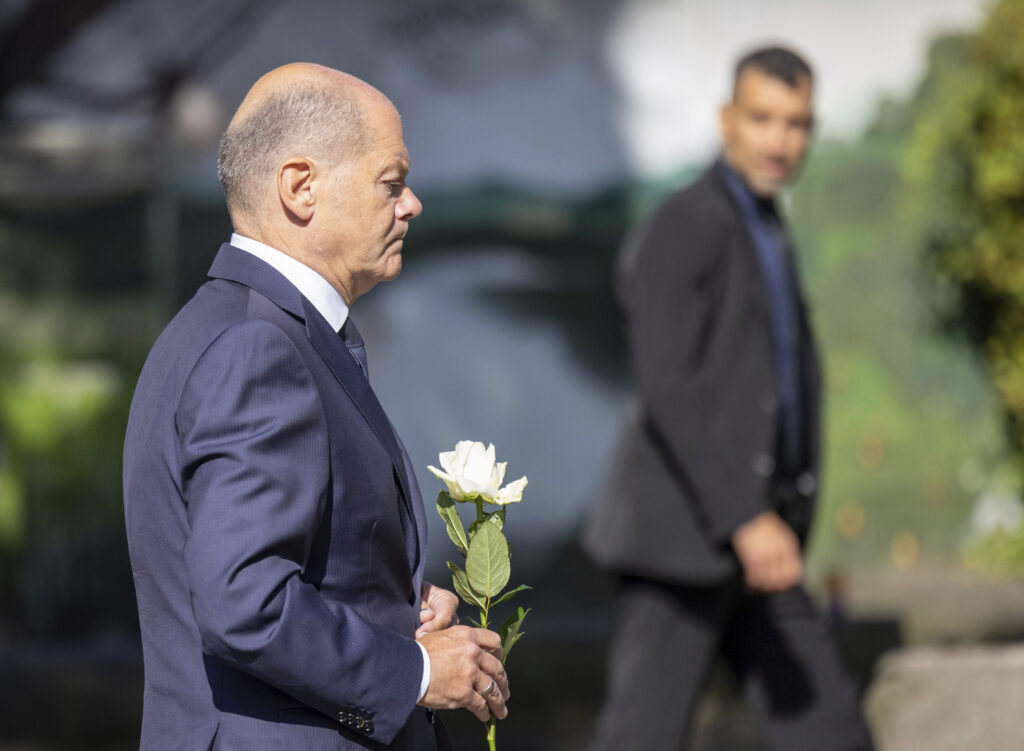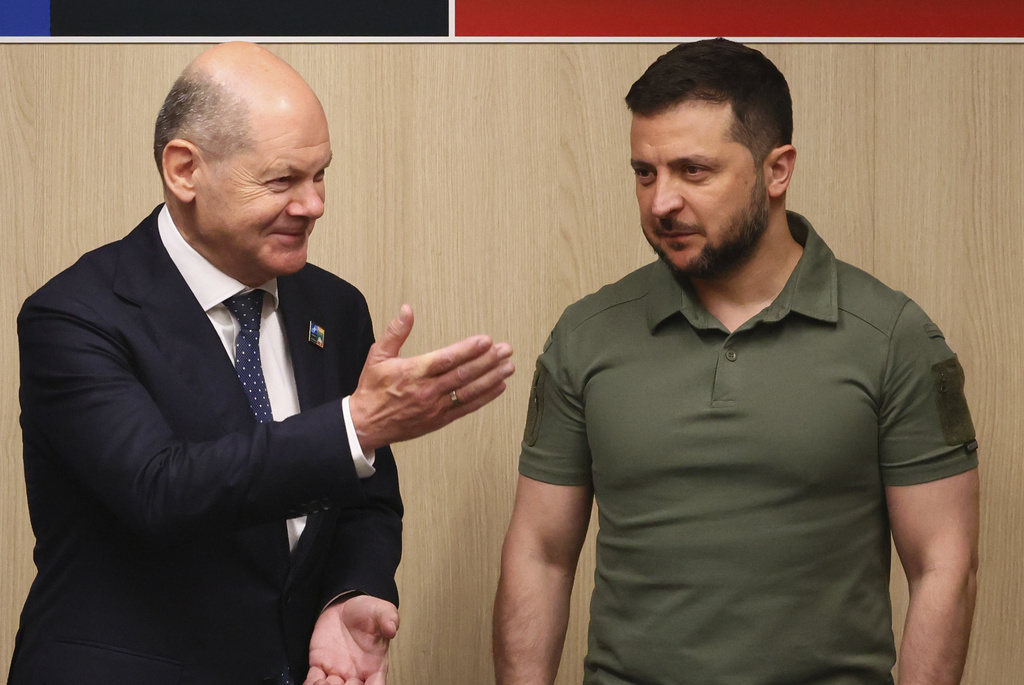Surge in Support for Germany’s Anti-Immigrant Party Could — Eventually — Spell Trouble for Aid to Ukraine
The new BSW party insists that any future coalition in which it is a part reject the planned deployment of American missiles on German soil.

The stunning advance of the anti-immigrant Alternative für Deutschland party in two German regional elections on Sunday might make those with memories of how the Weimar Republic fizzled a little jittery, even if this is not a case of history repeating itself.
There is no doubt that the far right’s win has upended Germany’s domestic political scene with repercussions impacting more than just immigration policy. The entire European posture toward Ukraine is at stake in the wake of the election.
The Social Democratic Party and its highest profile member, Chancellor Scholz, are smarting from the wounds. One of the SPD’s more outspoken members, Mahmut Özdemir, takes aim at his own party, writing on social media that since 2005 the SPD “has been justifying historically worst results with very few exceptions from election to election and then announcing analysis and change, but shortly after we continue as before.”

Mr. Ozemir adds that “people feel insecure when they attend folk festivals and gatherings of disrespectful, mostly foreign men.” That is a long way from advocating for the remigration out of Germany of foreign nationals that has been championed by some in the AfD party. Mr. Özdemir’s anger, though, underscores much of the national mood in Germany: exasperation with a political class seen as woefully detached from everyday concerns or incapable of finding solutions to them.
It is such discontent that, improbably enough, has catapulted the newish, left-populist BSW party to the position of kingmaker in eastern Germany. Not only is the party pro-Russian, but after Sunday’s election results Germany’s more fervent Ukraine supporters seem prepared to make concessions to help form coalitions that can actually govern.
In Sunday’s elections in Thuringia and Saxony, two states that were previously part of socialist East Germany, the BSW obtained 16 percent and 12 percent of the vote, respectively. Now, because of the complicated composition of majorities and a cross-party consensus to keep the far-right AfD out of government — despite the AfD’s insistence that it be included — the BSW’s participation in coalitions is now likely going to be essential.

The party, founded only this year by a longtime Bundestag member, Sahra Wagenknecht, is not only Euroskeptic in the broad sense but also takes a conciliatory approach towards Russia that could have big implications for Germany’s stance on supporting Ukraine in the face of Russia’s invasion and ongoing military aggression.
On Monday, the day after those regional votes were tallied, the BSW stated that coalition partners must align with her party’s softer approach to Russia — a stance it hammered home during the campaign. “A major issue in this election campaign is, of course, the question of war and peace, and people expect state governments to reflect their position on this issue,“ Ms. Wagenknecht told reporters.
The view of Ukraine from the eastern precincts of Germany looks a little different than it does from the western provinces. The fact that it was formerly a Soviet satellite state could have something to do with that. At any rate, in a survey in February, 41 percent of respondents said they would prefer that Ukraine cease its resistance to Russia, compared to just 20 percent in the west. Exit polls also showed the war in Ukraine to be a major issue for BSW voters.
Ms. Wagenknecht, emboldened by her party’s strong showing on Sunday, is now insisting that any future coalition publicly and expressly reject the planned deployment of American missiles on German territory,, as well as push for more diplomacy and fewer weapons deliveries.
That means that both Herr Scholz and the SPD, as well as the country’s largest opposition party, the center-right CDU, will face unanticipated hurdles as they try to form at least somewhat centrist governments in both eastern states.
The CDU is a staunch backer of military support for Ukraine and has even pushed Herr Scholz to take a more hawkish stance. Nevertheless, times are changing fast post-election. When asked about the likelihood of meeting Ms. Wagenknecht’s demands, the CDU leader, Friedrich Merz, told reporters on Monday that “It is now important, as a first step, to hold talks with the SPD and BSW. Then we will see what overlap or possible information there is.”
In the meantime, the rest of Europe is eyeing all the German developments warily. For one right-wing Polish news site, the fresh gains by the AfD and BSW are tantamount to victory for President Putin. Rome’s La Repubblica called the results in Thuringia and Saxony the latest proof that “the Kremlin now has its spokespeople in the heart of Europe.”

